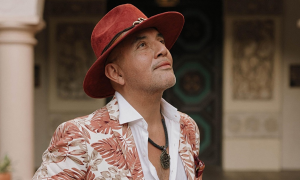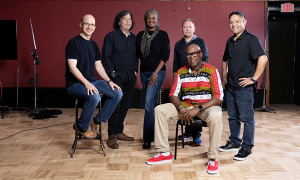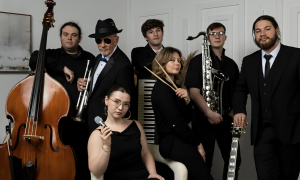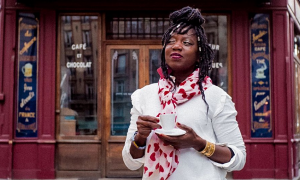Home » Jazz Articles » Take Five With... » Take Five With Majid Khaliq
Take Five With Majid Khaliq
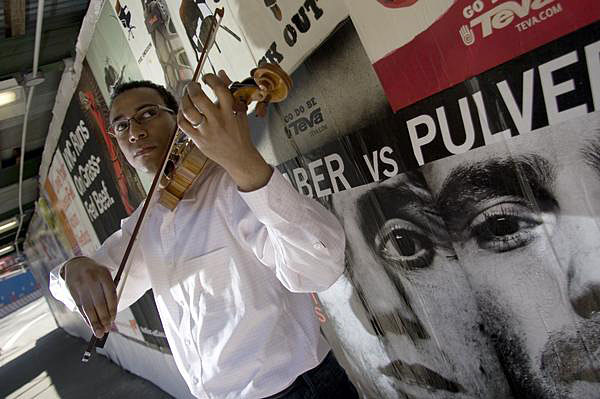
Majid Khaliq is a violinist and composer cut from a different cloth. He has been described by legendary musician

Wynton Marsalis
trumpetb.1961
In 2002, Khaliq graduated from the Juilliard School with a Bachelor of Music and in 2010 with a Master of Arts in Jazz Performance from Queens College's Aaron Copland School of Music.
Khaliq has played with great musicians such as Wynton Marsalis,

Kenny Barron
pianob.1943

Antonio Hart
band / ensemble / orchestrab.1968

Mark O'Connor
saxophoneb.1972

Regina Carter
violinb.1966
Instrument(s):
Violin, composition.
Teachers and/or influences?
Teachers: John Blake jr.,

Eddie Allen
trumpet
David Berkman
pianoInfluences:

Stuff Smith
violin1909 - 1967

Ray Nance
cornet1913 - 1976
Eddie South
violin1904 - 1962

Jean-Luc Ponty
violinb.1942

Kenny Garrett
saxophone, altob.1960

Kenny Kirkland
piano1955 - 1998

Kenny Dorham
trumpet1924 - 1972

McCoy Tyner
piano1938 - 2020

Steve Coleman
saxophone, altob.1956
I knew I wanted to be a musician when... I had a chance to see Itzhak Perlman play the Tchaikovsky Violin Concerto live, during my time at Interlochen Arts Camp. I was a student there, the summer of the performance, and found the music Itzhak had presented to be the definitive experience for my future musical journey. At the time it was just the violin and any music that it could make. I was awestruck.
Your sound and approach to music: My sound is a mix of some very definite influences. One, classical old Russian style violin technique as originally taught by the great Leopold Aura. The second is the grooves and harmony from great American Jazz masters, past and present. McCoy Tyner is one of the strongest influences in my sound.
Your teaching approach: My philosophy can be summed up in a quote by the great violinist Erik Friedman, "when teaching I first would like to save my students from myself." Meaning one should be mindful of the problems one has and teach the students only the successes one has to offer. Also, students should know that time and timing makes the difference in music.
Your dream band:
I have already been blessed with a great group of musician on my current project, The Basilisk (to be released February 8, 2011). Eric "ELEW" Lewis for groove and emphasis.

Jeb Patton
pianob.1974
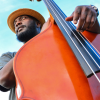
Ivan Taylor
bassRoad story: Your best or worst experience: No real crazy stories. But, I have a wonderful story from one show I did in the summer. My band was playing in Harlem and we were grooving on a

Bobby Watson
saxophone, altob.1953
Favorite venue:
Small's Jazz Club is my current favorite club. The acoustics are good. The atmosphere is warm and inviting and it is a small but classy place. St. Nick's Pub also because the people are one of a kind there.
Your favorite recording in your discography and why? Kenny Garrett, Songbook. First, Kenny plays from a very honest place. Also, the band is priceless. Pianist Kenny Kirkland, bassist Nat Reeves, and drummer

Jeff Tain Watts
drumsb.1960
The first Jazz album I bought was:

John Coltrane
saxophone1926 - 1967
What do you think is the most important thing you are contributing musically? I hope that I have a chance to show people the different ways of applying violin to the music of jazz. And, that people enjoy the grooving strings as much as they love the lyrical.
Did you know...
My great-grandfather was the Ed Smalls of the original "Small's Paradise in Harlem." And I was the character "Naheem" in Wes Craven's Academy Award-nominated feature film, Music from the Heart, starring Academy Award-winning actress Meryl Streep.
CDs you are listening to now:
Kenny Kirkland, Kenny Kirkland;
Kenny Garrett, Songbook and Standard of Language;

Branford Marsalis
saxophoneb.1960

Herbie Hancock
pianob.1940

Joe Henderson
saxophone1937 - 2001
Desert Island picks:
Kenny Garrett, Songbook;

Miles Davis
trumpet1926 - 1991
McCoy Tyner, The Real McCoy;
Joe Henderson, In and Out;
Kenny Kirkland, Kenny Kirkland.
How would you describe the state of jazz today? I view the state of jazz in a positive place. In the area of education and institutionalization of jazz, it is doing better than ever. In the area of performance, it is more difficult because the live performance of music has moved to many new places. Places like the Internet are spaces that did not exist during John Coltrane's time. Thus, making the market more spread out and harder to grasp. However, that isn't negative. It is just different.
What are some of the essential requirements to keep jazz alive and growing? The continued understanding that jazz is from "the Blues." And that jazz is an American art form that needs respect and love from its own countrymen and women to thrive.
What is in the near future? Looking to do some touring in Japan this summer and to go to Europe in the fall.
By Day:
I teach the violin in NYC public school C.S. 73 in the Bronx, through the non-profit organization Change for Kids. And teach in a Waldorf School in Garden City, Long Island.
If I weren't a jazz musician, I would be a: I see no other way of living.
Photo Credit
Courtesy of

Majid Khaliq
violinb.1977
Tags
Majid Khaliq
Take Five With...
United States
wynton marsalis
Kenny Barron
Antonio Hart
Mark O'Connor
Regina Carter
Eddie Allen|
David Berkman
Stuff Smith
Ray Nance
Eddie South
Jean-Luc Ponty
Kenny Garrett
Kenny Kirkland
Kenny Dorham
McCoy Tyner
Steve Coleman
Jeb Patton
Ivan Taylor
Bobby Watson
Jeff "Tain" Watts
John Coltrane
Branford Marsalis
Herbie Hancock
Joe Henderson
Miles Davis
Comments
PREVIOUS / NEXT
Support All About Jazz
 All About Jazz has been a pillar of jazz since 1995, championing it as an art form and, more importantly, supporting the musicians who make it. Our enduring commitment has made "AAJ" one of the most culturally important websites of its kind, read by hundreds of thousands of fans, musicians and industry figures every month.
All About Jazz has been a pillar of jazz since 1995, championing it as an art form and, more importantly, supporting the musicians who make it. Our enduring commitment has made "AAJ" one of the most culturally important websites of its kind, read by hundreds of thousands of fans, musicians and industry figures every month.


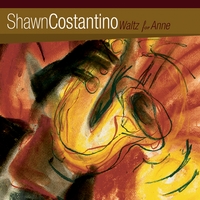
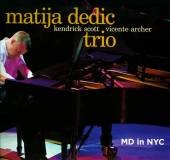



 Buy Now
Buy Now




